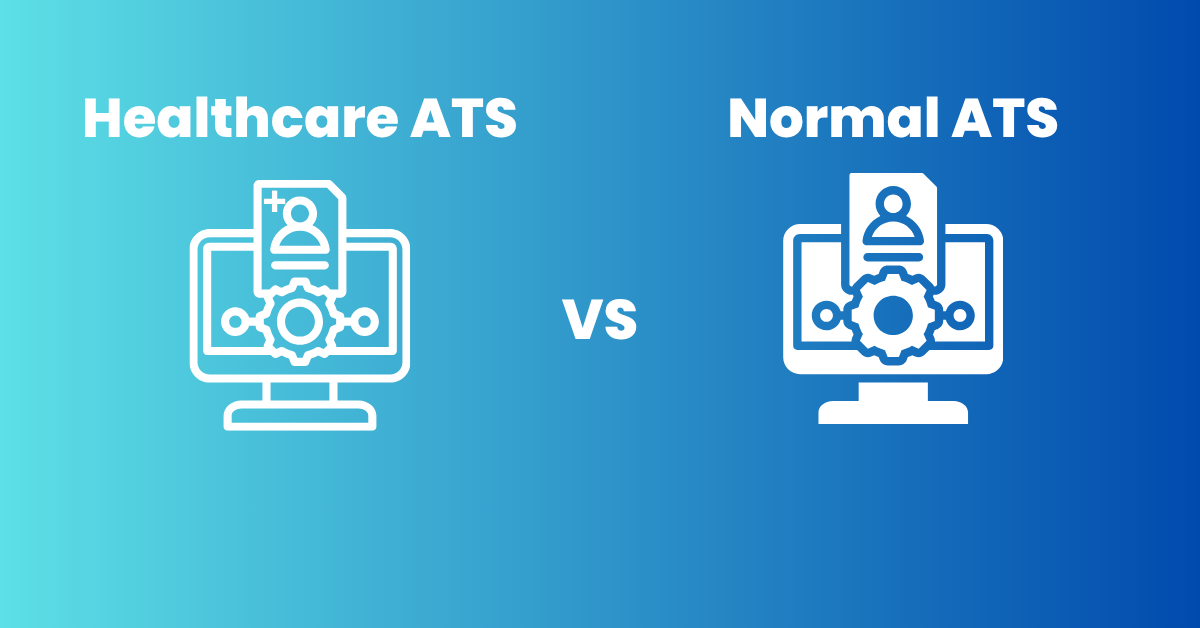
When hiring in the healthcare sector, efficiency and compliance are critical. A healthcare applicant tracking system is designed specifically to meet these unique demands, while a general ATS (applicant tracking system) is built for broader, less specialized recruiting needs. Although both platforms serve the same core purpose—streamlining recruitment and hiring—their functionalities, features, and compliance requirements differ significantly. In this article, we’ll dive deep into the key differences between healthcare applicant tracking systems and general ATS platforms, and explain why the right choice can transform your organization’s hiring process.
A healthcare applicant tracking system is a recruitment software built specifically to handle the complexities of healthcare hiring. Unlike general applicant tracking systems, a healthcare ATS goes beyond posting jobs and tracking candidates. It is tailored to meet industry requirements such as credential management, regulatory compliance, shift-based hiring, and managing a high volume of specialized roles.
Healthcare organizations deal with a wide variety of positions ranging from physicians and nurses to technicians and administrative staff. A healthcare ATS helps ensure that each role is matched with candidates who not only have the right skills but also meet certification and compliance standards required in the healthcare industry.
A general applicant tracking system is software that automates and organizes the hiring process across industries. It usually includes features like job postings, resume parsing, candidate communication, and interview scheduling. While these systems are excellent for standard recruitment processes, they often lack healthcare-specific tools like license verification or HIPAA-compliant data handling.
General ATS platforms are versatile and can be used in industries like IT, retail, and finance. However, when applied to healthcare, their lack of specialized features can lead to inefficiencies and compliance risks.
Before we compare the two systems, it’s important to understand why healthcare hiring has unique requirements:
Implementing a healthcare applicant tracking system brings measurable advantages:
While general ATS platforms are effective for broad hiring purposes, they lack the deep integration needed for healthcare. A general applicant tracking system might be perfect for retail, IT, or corporate hiring, but in healthcare, its limitations can lead to compliance risks, hiring delays, and ultimately, compromised patient care.
For example, a nurse candidate’s license expiration date might go unnoticed in a general ATS, leading to potential liability. Similarly, the urgency of filling critical roles like ER staff or specialized technicians requires automation that general systems simply cannot deliver.
When deciding between a healthcare ATS and a general ATS, consider the following questions:
If you answered “yes” to most of these questions, a healthcare applicant tracking system is the right choice for your organization.
The demand for healthcare professionals continues to rise, and organizations cannot afford inefficient hiring systems. As technology advances, healthcare applicant tracking systems are integrating artificial intelligence, predictive analytics, and automated credential verification to create smarter, faster, and more reliable recruitment pipelines.
General ATS solutions will always serve as a solid foundation for recruitment in other industries. However, healthcare’s specialized nature requires systems built with compliance, speed, and precision at the core.
The difference between a healthcare applicant tracking system and a general ATS comes down to specialization. Healthcare hiring demands unique features that general applicant tracking systems simply do not provide. From credential management and compliance tracking to urgent staffing and shift-based hiring, a healthcare ATS is built to ensure organizations can recruit the right professionals quickly and securely.
Choosing the right system is not just about making recruitment easier—it’s about safeguarding patient care and ensuring compliance while building a resilient workforce.
Talent Pathway is a next-generation healthcare applicant tracking system designed to simplify and accelerate your hiring process. With built-in compliance tools, automated credential verification, and AI-driven candidate matching, Talent Pathway ensures you hire the right professionals faster—without compromising on quality or compliance.
Book a Demo today and see how Talent Pathway can transform your healthcare hiring.